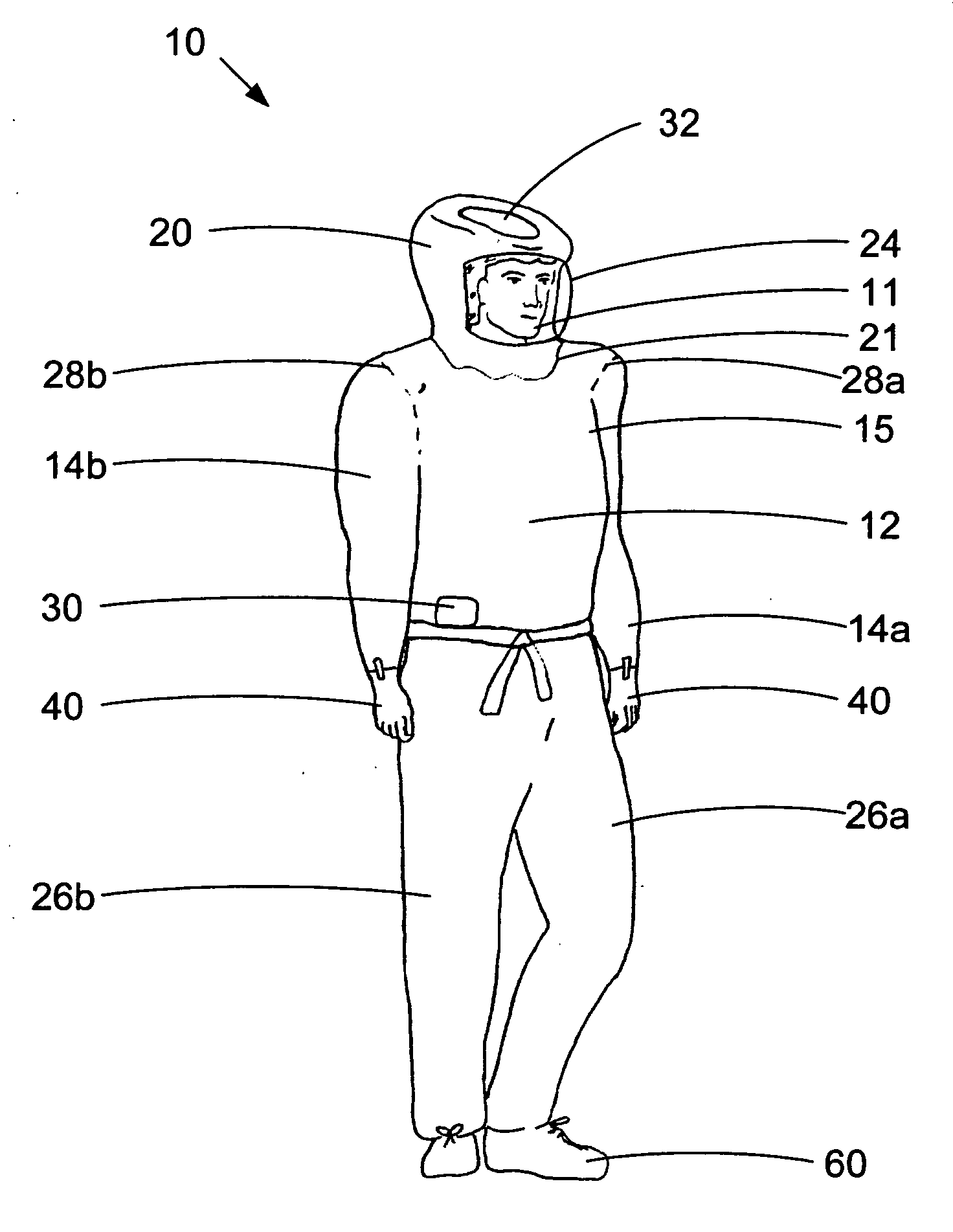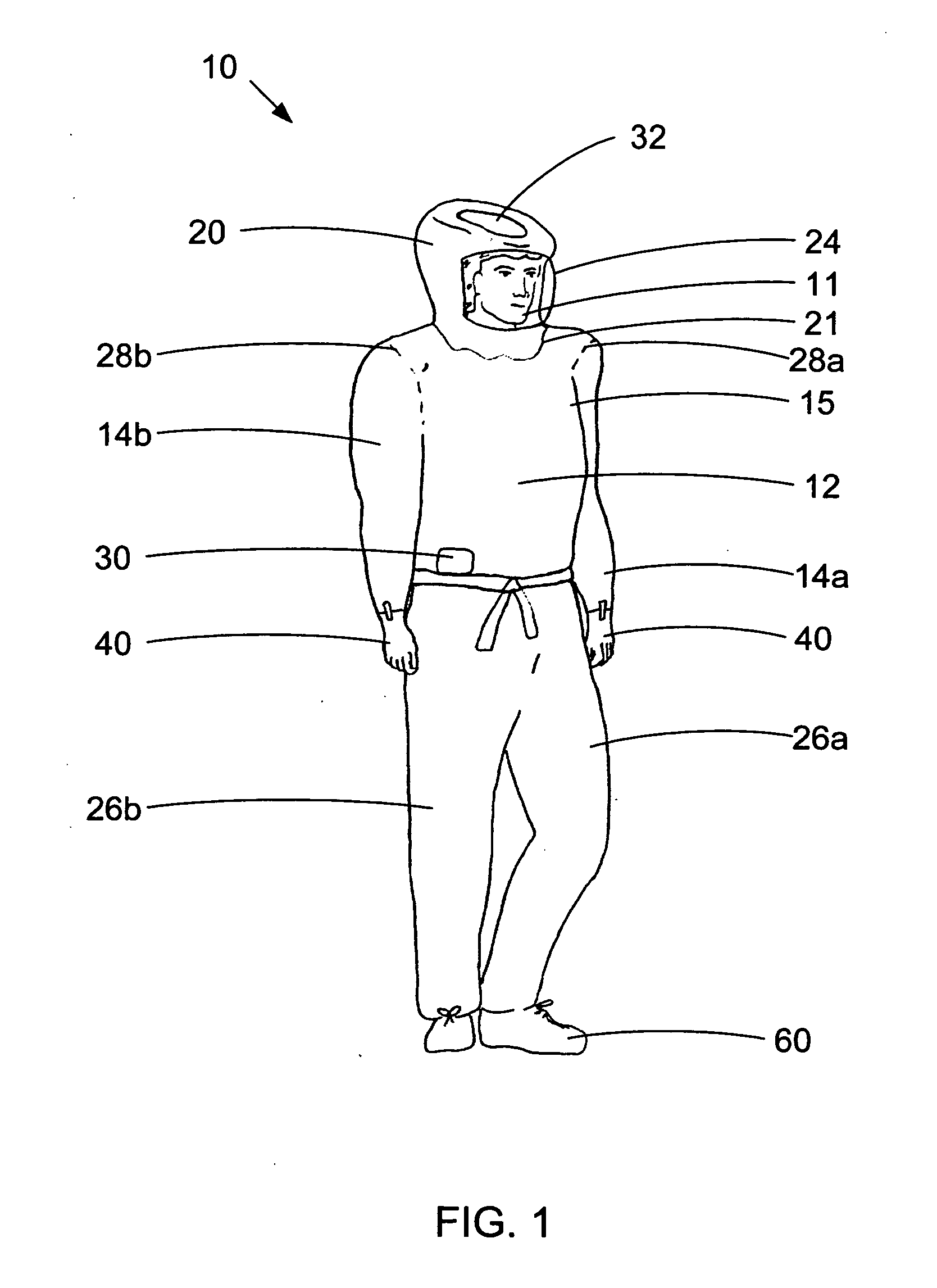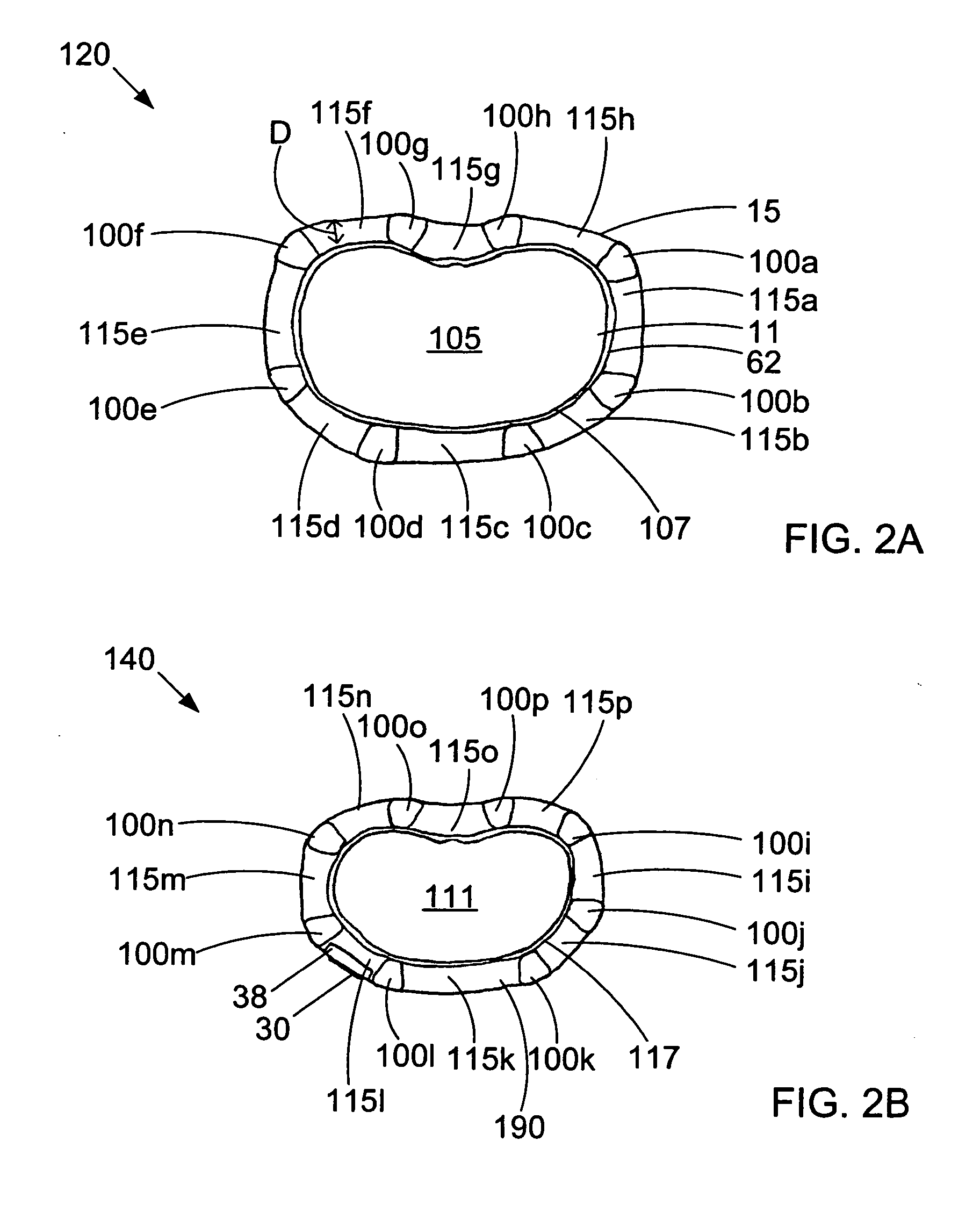Protective apparel breathing assistance
a technology for protecting clothing and breathing, applied in the field of protective clothing, can solve the problems of repeated complaints of thermal discomfort, fan not sufficiently cooling the person's body, and prone to contamination by doctors in medical environments such as these, and achieve the effects of improving thermal management, low resistance, and low resistan
- Summary
- Abstract
- Description
- Claims
- Application Information
AI Technical Summary
Benefits of technology
Problems solved by technology
Method used
Image
Examples
Embodiment Construction
[0042] The present invention will now be described in detail with reference to a few preferred embodiments thereof as illustrated in the accompanying drawings. In the following description, numerous specific details are set forth in order to provide a thorough understanding of the present invention. It will be apparent, however, to one skilled in the art, that the present invention may be practiced without some or all of these specific details. In other instances, well known process steps and / or structures have not been described in detail in order to not unnecessarily obscure the present invention.
[0043] Protective apparel described herein includes a set of spacers that maintain apparel proximate to the spacers distant from the apparel wearer. FIG. 1 illustrates an outer front elevation view of protective apparel 10 in accordance with one embodiment of the present invention. While the present invention will now be described as protective apparel useful for improving heat managemen...
PUM
 Login to View More
Login to View More Abstract
Description
Claims
Application Information
 Login to View More
Login to View More - R&D
- Intellectual Property
- Life Sciences
- Materials
- Tech Scout
- Unparalleled Data Quality
- Higher Quality Content
- 60% Fewer Hallucinations
Browse by: Latest US Patents, China's latest patents, Technical Efficacy Thesaurus, Application Domain, Technology Topic, Popular Technical Reports.
© 2025 PatSnap. All rights reserved.Legal|Privacy policy|Modern Slavery Act Transparency Statement|Sitemap|About US| Contact US: help@patsnap.com



